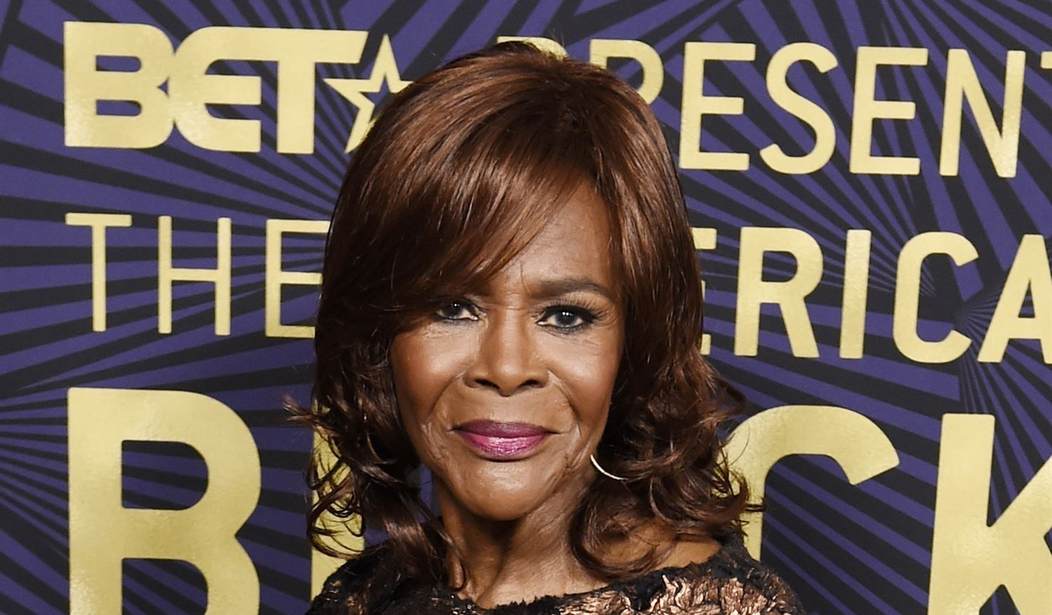I am a child of the ‘70s, so television was the medium custom-crafted for my Gen X, latchkey kid life. Since I first saw her grace the screen in “The Autobiography of Miss Jane Pittman”, Cicely Tyson has been my cultural Queen. Her beauty, dignity, grace, and grit oozed from every pore and glanced over every lyrical line she uttered.
Rest in power, Cicely Tyson. Forever our queen pic.twitter.com/DZH93RDJwV
— Strong Black Lead (@strongblacklead) January 29, 2021
Yesterday, Queen Cecily made her transition from this life at the age of 96. While I would normally say she leaves an incredible void, with her that is not the case. Tyson had an illustrious 70-year career that spanned, television, screen, and stage. She didn’t just forge a path for Black actresses to follow, she created an entire ecosystem. It’s the difference between an Interstate Highway and the Grand Canyon. Tyson is the Grand Canyon: created by nature, formed over time, and magnificent in beauty.
It’s because of Cicely Tyson that actresses like Viola Davis, Kerry Washington, Halle Berry, Octavia Spencer, Taraji P Henson, Angela Bassett, Regina King, Gabrielle Union and so many others are hear today. She fought the battles, so they didn’t have to.
— 🦋Selina @ sundance 🦋 (@Selinakyle981) January 29, 2021
Born December 19, 1924 in Harlem, New York, Tyson’s parents were West Indian immigrants. Tyson started modeling as a teenager, and felt acting was a natural transition, despite her mother’s objections. In an interview with Variety, Tyson said,
“My career was difficult from the beginning. My mother didn’t want me to be an actress. She said ‘I don’t want you to do THAT.’ I never did find out what ‘THAT’ was. She had such great hopes and dreams for me … There was an adjustment, and she eventually made peace with it. Time takes care of everything.”
Tyson made her first stage appearance in 1950, and honed her craft through classes, while appearing in local productions with then unknowns Louis Gossett, Jr., Maya Angelou, and James Earl Jones.
In 1964, Tyson made her television debut, becoming the first Black woman to appear as a series regular in a drama. Tyson played a secretary in “East Side/West Side” with George C. Scott. The show only ran for one season (1963-64), but Tyson had made her impression on the smaller screen, and she would spend a decade defining it. Tyson went on to appear in “The Autobiography of Miss Jane Pittman” (1974), for which Tyson won two Emmy Awards; the miniseries “Roots” (1977); and portraying Harriet Tubman in “A Woman Called Moses”, as well as Coretta Scott King in the miniseries “King” (1978); and the trailblazing educator Marva Collins in “The Marva Collins Story” (1981).
“Sounder” (1972) was Tyson’s third feature film for which she received her only Oscar nomination.
Tyson was selective about the roles she chose, and refused to appear in any of the “Blacksploitation” films of that period. She carefully cultivated her image, and wanted to appear in roles that had high intention. In 1983, Tyson returned to New York and the stage, appearing on Broadway.
“Throughout her career Cicely Tyson refused to play drug addicts, prostitutes or maids, roles she thought demeaning to Black women. But when a good part came along she grabbed hold of it with tenacity.” – @Variety pic.twitter.com/ehh0tr7B8l
— MACRO (@stayMACRO) January 29, 2021
Tyson co-founded the Dance Theater of Harlem after Martin Luther King Jr.‘s assassination. A school board in East Orange, New Jersey wanted to name a performing arts school after her. Tyson agreed to accept the honor only if she could participate in school activities. Tyson attended meetings and events at the school, and even taught a Master Class.
"Whatever good I have accomplished as an actress I believe came in direct proportion to my efforts to portray Black women who have made positive contributions to my heritage." #CicelyTyson #JustAsIAm pic.twitter.com/o2n4vFlpaI
— Well-Read Black Girl ™ (@wellreadblkgirl) January 29, 2021
By the 1990s, Tyson had become a professional and cultural touchstone for Black artists, and she was sought after to appear in their film and stage productions. Her latter years gave her starring turns in a host of Tyler Perry movies like Diary of a Mad Black Woman (2005) and Madea’s Family Reunion (2006), and in The Help (2011).
Tyson’s career ended where she achieved her launch. She had a recurring role in “How to Get Away With Murder,” playing the mother to Viola Davis’s lead character Annalise Keating. Tyson received five Emmy nominations for her role.
Viola Davis Pays Tribute to TV Mom Cicely Tyson: 'You Gave Me Permission to Dream' https://t.co/htr7W5fsYg
— People (@people) January 29, 2021
Along with her two Emmy Awards and an Oscar nomination, in total, Tyson earned 16 Emmy nominations, 15 nominations for the NAACP Image Awards (she won eight), a 2018 Honorary Oscar, and a Tony Award for the 2013 revival of Horton Foote’s “The Trip to Bountiful.” Tyson also won a Peabody for career achievement.
Tyson became a member of the Black Filmmakers Hall of Fame in 1977. She was honored by the Congress of Racial Equality and by the National Council of Negro Women. In 2010, the NAACP presented Tyson with its 95th Spingarn Medal — an award given to African Americans for outstanding achievement.
In 2015, Tyson was a recipient of the Kennedy Center Honors award. In 2016, Tyson received the Presidential Medal of Freedom from the first Black president Barack Obama. Tyson was also inducted into the American Theatre Hall of Fame and the Television Academy Hall of Fame.
Tyson was married once, in 1981, to the legendary jazz trumpeter Miles Davis. They divorced in 1989 and had no children.















Join the conversation as a VIP Member